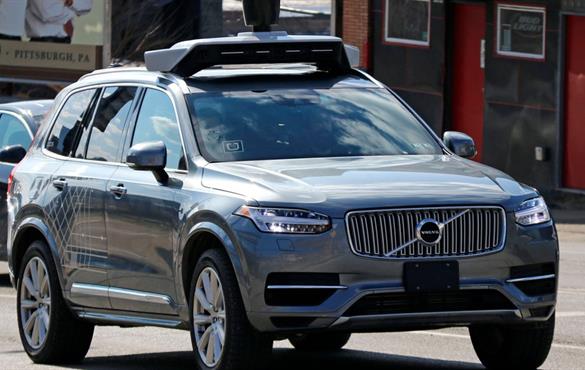In the media: Uber's self-driving cars are back. Well, sort of.
Professor Sanjoy Baruah weighs in on Uber's decision to resume self-driving car testing

Uber's self-driving cars are back on the road in Pittsburgh, but with a lot of changes.
In the four months since a self-driving Uber hit and killed a woman walking a bicycle on an Arizona road, the ride-hailing company has made some changes. The first and foremost is keeping the vehicles in manual mode.
After 49-year-old Elaine Herzberg was fatally hit in Tempe, Arizona, all of Uber's self-driving programs were shut down. In Arizona, those operations were shuttered permanently. In San Francisco, Uber let its testing permit lapse. Now after police and federal investigations found that driver distraction and glitches with Uber's software were factors in the crash, Uber's ready to resume testing, but with a much different program.
In a blog post this week, Uber's head of advanced technologies, Eric Meyhofer, laid out how the self-driving program was reshaped by a "top-to-bottom review" with a "focus on safety."
The new self-driving program has two "mission specialists" in the front and passenger seats. Before the fatal crash there was only one operator, who sat in the driver seat.
For now the cars are only in manual mode, meaning they're driven by people just like any other car on the road, even if they look like self-driving vehicles. But it's not a total waste of time. The miles in manual mode will give Uber data about real-time situations and what it's like out on the road. It's also a boon for Uber's mapping efforts, which will be a critical tool for autonomous driving.
The test drivers are going back to driving basics with courses in defensive and distracted driving and a more "rigorous training" program before operating an autonomous car.
A big change is in the screens. Uber said it reviewed the front-facing tablet and changed it to have fewer distracting features in the interface. Police found driver Rafaela Vasquez was streaming Hulu on a cellphone up until the crash.
Sanjoy Baruah, an engineering professor at Washington University in St. Louis, said in a call Uber's revamped program is the right way for the company to proceed.
Before, Uber jumped in too quickly before building a safe program. "If you want to introduce a new technology you have to spend some time babysitting the technology — like Uber is proposing now," Baruah said.




